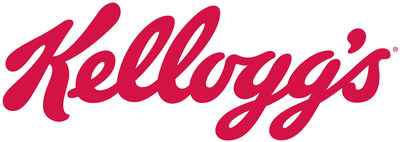PR Newswire
BATTLE CREEK, Mich., Nov. 12, 2020 /PRNewswire/ — Roughly 300 million children have been without school meals and are at risk of hunger since the start of the COVID-19 pandemic. Food banks are working to prevent the health crisis from becoming a hunger crisis, but their resources can only go so far. Lisa Moon, CEO of The Global FoodBanking Network and Stephanie Slingerland, Kellogg Company Sr. Director of Philanthropy and Social Impact share how school-based feeding programs can help fill that feeding gap.
Social K – Kellogg Company Blog
By: Lisa Moon, CEO of The Global FoodBanking Network and Stephanie Slingerland, Kellogg Company Sr. Director of Philanthropy and Social Impact
The Global FoodBanking Network (GFN) recently release Healthy Nations Start with Healthy Children – A View from the Field1. Commissioned in 2019, the study evaluated just how much GFN’s member food banks help their communities. According to the study, food banks in 30 countries serve an estimated 3.49 million school-age children. Even before COVID, an estimated 73 million vulnerable children were not being reached with food at school. That number has no doubt risen – and will continue to rise without urgent action by government, the private sector, and civil society.
Without intervention, childhood hunger can have devastating effects, like damaging a child’s physical and cognitive development with consequences that may last a lifetime if not addressed. This not only threatens a child’s future, but also harms families, communities, and nations’ economic growth. The study’s results prove that school-based feeding programs are among the most cost-effective means of addressing child hunger.
Programs Needed to Drive Greater Impact
Kellogg has been a founding partner of GFN, which has a shared mission of helping to end childhood hunger. GFN food banks serve as a lifeline for children. The food banks provide school breakfasts, school lunches, backpacks or weekend take-home rations, summer or holiday food rations, and nutrition monitoring and education. More programs like these are essential to avoid an even greater hunger crisis. We must take action now in two main ways:
- Strengthen government social support systems through school meals. The public and private sectors should make critical investments in school-based feeding programs as a means of promoting a society’s educational, employment and economic success.
- Strengthen the role of food banks and other private-sector actors. Food banks can support the ongoing development of food aid to vulnerable populations and can help secure public investments in social protection, health, education and economic development.
There’s an urgent need to act now. Many models for successful school-based programs exist and, when scaled, the potential to quickly and efficiently reach vulnerable children is huge.
For example, since 2013, FoodForward South Africa (FFSA) has partnered with Kellogg’s South Africa to provide breakfast for thousands of children each school day. In 2019, FFSA distributed breakfast to primary and secondary schools in areas of high poverty and unemployment in Cape Town, Durban, Johannesburg, and Port Elizabeth, serving 30,035 students daily.
Established in 2001 with 17 schools, Foodbank Western Australia developed the first School Breakfast Program run by a food bank in the GFN Network. By 2019, 490 schools participated in the program. The program directly reached over 21,500 children, serving more than 69,900 breakfasts each week.
We Must Act Now
These are real examples of why we believe governments, and food and beverage companies – including manufacturers and retailers – can be instrumental to providing healthy surplus food to food banks. Governments can also sponsor policies that encourage food donations, which would engage the private sector to support government programs and invest in school meals. We understand these entities have a lot on their plates right now. But millions of kids do not. We must act now. Please help us help more kids by donating to The Global FoodBanking Network.
About Kellogg Company
At Kellogg Company (NYSE: K), we strive to enrich and delight the world through foods and brands that matter. Our beloved brands include Pringles®, Cheez-It®, Special K®, Kellogg’s Frosted Flakes®, Pop-Tarts®, Kellogg’s Corn Flakes®, Rice Krispies®, Eggo®, Mini-Wheats®, Kashi®, RXBAR®, MorningStar Farms® and more. Net sales in 2019 were approximately $13.6 billion, comprised principally of snacks and convenience foods like cereal and frozen foods. Kellogg brands are beloved in markets around the world. We are also a company with Heart & Soul, committed to creating Better Days for 3 billion people by the end of 2030 through our Kellogg’s® Better Days global purpose platform. Visit www.KelloggCompany.com or www.OpenforBreakfast.com.
1 Kellogg Company Fund is a sponsor of the Healthy Nations Start with Healthy Children – A View from the Field study.
![]() View original content to download multimedia:http://www.prnewswire.com/news-releases/school-based-feeding-programs-need-your-support–now-301171502.html
View original content to download multimedia:http://www.prnewswire.com/news-releases/school-based-feeding-programs-need-your-support–now-301171502.html
SOURCE Kellogg Company


